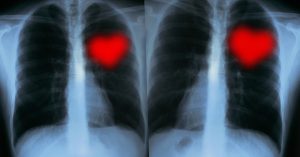Cardiomyopathy: the Precursor to Heart Failure
At Ascent Cardiology Group, we recognize that any medical condition affecting the heart should be addressed in its earliest stages to prevent further damage to this vital organ. Individuals with cardiomyopathy may not exhibit symptoms during the early stages; however, if left untreated, cardiomyopathy can lead to heart failure, a potentially fatal condition. Don’t be afraid to seek help for your heart problem. The best heart doctor in Tampa Bay, Dr. Sachin V. Diwadkar, FACC, FASE, of Ascent Cardiology Group, is standing by to answer all of your questions about cardiomyopathy.
Dilated cardiomyopathy occurs when the left ventricle becomes dilated and loses the ability to efficiently pump blood from the heart to the rest of the body. Hypertrophic cardiomyopathy is the result of heart muscle that has become too thick, making it difficult to pump blood efficiently. When the heart muscle loses elasticity and starts to become stiff, it is known as restrictive cardiomyopathy. There is also a form of cardiomyopathy referred to as arrhythmogenic right ventricular dysplasia; however, this type of cardiomyopathy is much rarer as it is typically the result of genetic mutations.
• Bloating caused by fluid buildup in the abdomen
• Bouts of coughing when lying down
• Breathlessness during periods of activity and rest
• Fainting
• Hard or rapid heart beats
• Sudden dizziness or lightheadedness
• Swelling of the legs, ankles, and feet
• Uncomfortable chest pressure
The content, views, and opinions communicated on this website do not represent the views of Ascent Cardiology Group. Reliance on any information provided by this website is solely at your own risk. Although this website contains links to other medical websites, this is strictly for informational purposes. Ascent Cardiology Group is not responsible nor do they approve of the content featured on any third party linked websites referenced on this website.

Stress and Heart Disease: What You Can Do to Improve Your Heart Health
Working long hours, filling up free time, and taking on additional responsibilities is a way of life for Type A

What is Nuclear Cardiology?
Nuclear cardiology is a subspeciality of general cardiology that involves the use of radioactive substances and advanced medical imaging modalities

Coronary Heart Disease: What Is It and How Is It Treated?
In addition to being the most common type of heart disease, coronary heart disease is the deadliest. In fact, it’s
Congenital Heart Defects: How to Ensure Your Baby Lives a Happy and Healthy Life
In this article, a cardiologist in Tampa Bay with Ascent Cardiology Group will shed some light on how CHD is diagnosed and treated. Being told that their child may be suffering from a heart condition is one of the most alarming things a new parent can hear. If you believe your child may be suffering from CHD, or your pediatrician recommends that you consult a cardiologist, schedule an appointment with Ascent Cardiology Group.
Gray or blue skin Difficulty breathing Feeding difficulties Poor weight gain Low blood pressure Swelling in the legs, abdomen, or around the eyes Signs of a less severe CHD include:
• Swelling in the hands and feet
• Shortness of breath
• Exhaustion
• Fainting during physical activity
If your child is exhibiting any of the above symptoms, it’s important that you contact a cardiologist in Tampa Bay as soon as possible.
Once your child is under the care of a board-certified cardiologist, a number of tests can be performed to diagnose the CHD. An echocardiogram, electrocardiogram, and chest X-ray are all painless, non-invasive tests that can be performed to accurately determine if your child has a heart defect. What follows are the eight most common congenital heart defects that an individual can be diagnosed with:
• Ventricular septal defect
• Atrial septal defect
• Tetralogy of fallot
• Single ventricle defects
• Pulmonary valve stenosis
• Patent ductus arteriosus
• Dextro-transposition of the great arteries
• Aortic valve stenosis
There are many additional defects that could be affecting your child. The survival of someone diagnosed with a heart defect depends upon the severity of the defect, how early it is diagnosed, and how it is treated. Remember, diagnosis and treatment can’t come early enough for a child suffering from CHD.
After treatment, your child will require life-long monitoring to ensure that their heart is functioning properly. To ensure that your child’s heart health is looked after now and well into the future, consult the top cardiologists in Tampa from Ascent Cardiology Group. Our team of cardiologists will do everything they can to ensure that your child lives a long and healthy life.
The content, views, and opinions communicated on this website do not represent the views of Ascent Cardiology Group. Reliance on any information provided by this website is solely at your own risk. Although this website contains links to other medical websites, this is strictly for informational purposes. Ascent Cardiology Group is not responsible nor do they approve of the content featured on any third party linked websites referenced on this website.

Stress and Heart Disease: What You Can Do to Improve Your Heart Health
Working long hours, filling up free time, and taking on additional responsibilities is a way of life for Type A

What is Nuclear Cardiology?
Nuclear cardiology is a subspeciality of general cardiology that involves the use of radioactive substances and advanced medical imaging modalities

Coronary Heart Disease: What Is It and How Is It Treated?
In addition to being the most common type of heart disease, coronary heart disease is the deadliest. In fact, it’s